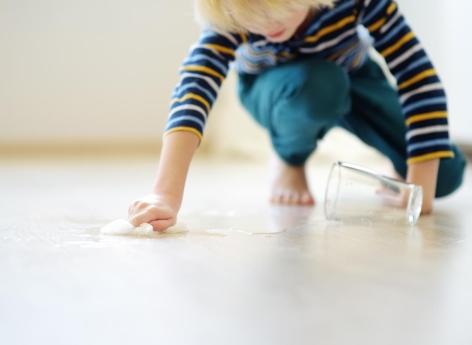Children whose parents frequently lied to during childhood tend to adopt more manipulative behaviors in adulthood.

It is well known, children tend to reproduce what the mistakes of their parents. And when a parent lies to their offspring, whether out of spite, omission or “for their own good”, the latter will tend to be more manipulative as they grow up. This is the result of a study published at the end of September in The Journal of Experimental Child Psychology.
To reach this conclusion, researchers from theNational University of Singaporein collaboration with the universities of Toronto (Canada), San Diego (United States) and Zhejiang (China), followed 379 young adults aged 21 on average to whom they provided four questionnaires to complete.
“Consider alternatives to lying”
Through the first, participants were asked how often they felt their parents lied to them when they were children by saying things such as “If you don’t come with me now, I’ll leave you here alone”, or even “I did not take my wallet on me, we will come back another day”. The second questionnaire was devoted to the lies of the participants, uttered to their parents. Finally, the last two concerned their attitude in society and their proportion to behave selfishly and impulsively.
The researchers were thus able to observe that adults whose parents seemed to lie frequently were more likely to have intrusive, even manipulative behavior. “Asserting authority over children is a form of psychological intrusion that can undermine children’s sense of autonomy and lead to rejection, ultimately undermining their emotional well-being. Parents should be aware of these potential implications and consider alternatives to lying,” suggests Peipei Setoh, assistant professor at the School of Social Sciences at the National University of Singapore (NTU) and lead author of the study.
Not all lies have the same impact
“It’s possible that a lie to assert parental power, such as ‘If you don’t behave well, we’ll throw you into the ocean to feed the fish’, is more related to children’s difficulties adjusting to adulthood, compared to lies that target child conformity, such as ‘There’s no more candy in the house,'” she continues.
However, this research has some limitations. Indeed, the answers were obtained from self-assessments based on distant memories. To go further, it would be interesting to involve parents in future research, say the researchers. The aim is to distinguish “harmless” lies, such as the one about candy, from those that could have had negative consequences on the psychological well-being of children, such as the threat of being thrown into the sea for example.
It is regularly shown that the education of a child has a significant impact on his social development but also on his health. This summer, a study conducted by the University of Loma in the United States proved that a “cold” education accelerated cellular aging in children. In their work on 200 participants, the researchers found that the fragments of chromosomes making up human DNA were shorter in people whose parents had been distant during childhood. However, “when telomeres shorten, the risk of suffering from a disease increases, such as premature death”, noted the authors of the study.
.















